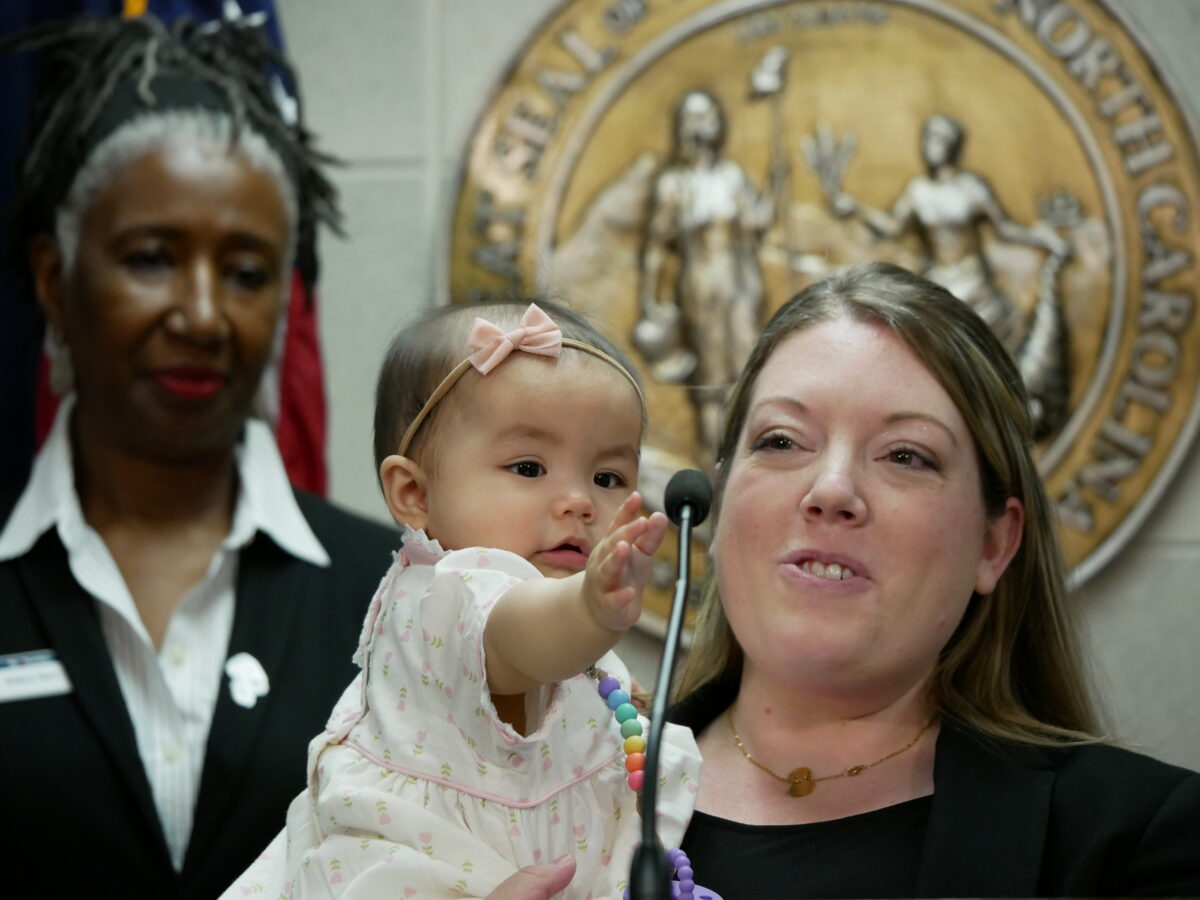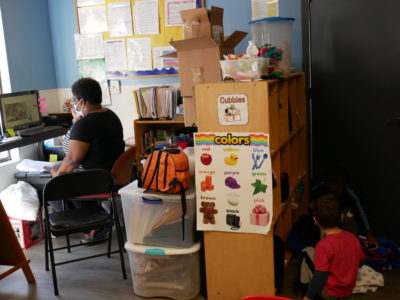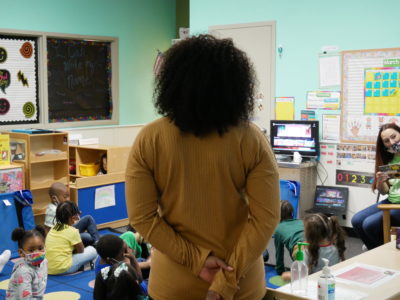

|
|
Without further child care investments in the state’s final budget, child care providers say, a difficult situation for families, with little access to affordable high-quality care, will get worse.
But neither the House nor the Senate so far has included new state funding to avoid a fiscal cliff for providers as federal relief funds dry up at the end of this calendar year.
The Senate budget would redirect another pot of funding from the American Rescue Plan Act (ARPA) to continue grants to support child care teacher compensation. But that would not be enough to last through the upcoming fiscal year, Summer Tonizzo, a spokesperson from the Department of Health and Human Services (DHHS), said in an email.
“We appreciate the flexibility the Senate is providing for the use of ARPA funds,” Tonizzo said. “Unfortunately, there still remains a $40 million gap.”
The redirected funding was originally intended to boost the child care subsidy program, which helps working low-income families afford child care. There is $60 million left of that money, but $100 million is needed for the stabilization grants to last through the end of the fiscal year on June 30, 2024, Tonizzo said.
“Given the current availability of ARPA funding, NCDHHS will either have to cut funding for child care subsidy that helps working families afford child care, or discontinue funding for early childhood teacher pay increases and bonuses midway through the upcoming fiscal year that have proven essential in helping to stabilize a fragile child care industry,” Tonizzo said. “Both are needed to avoid a crisis for children, families, and employers.”
As those funds dry up, providers will find themselves in a new job market, unable to provide competitive compensation to employees without further public investment. Providers say they will likely have to raise tuition rates for parents and still struggle to find qualified teachers. The median hourly wage for lead teachers in centers increased by 21% after the grants, from $11.50 to $13.92, according to a March survey of 2,518 providers by the North Carolina Child Care Resource and Referral Council (NC CCR&R).
State lawmakers are in conference now to work out a state budget. Legislators from both parties, as well as state officials, advocacy organizations, and the state Chamber of Commerce, pushed for another one-time $300 million in state funding to help programs avoid that fiscal cliff and its potential consequences — increases in teacher turnover, declines in quality and availability, and increases in cost.
Yet that state funding has not shown up in the House or Senate budget proposals. Although items may be added to the budget during conference talks, a new allocation that large is unlikely, legislators and experts told EdNC.
More from this legislative session…
When asked why the compensation grants did not make it into the budget proposals, and whether they might show up in the conference budget, Rep. Donny Lambeth, R-Forsyth, said the House chose not to replace the federal funding.
“State made decision not to back fill with state money,” Lambeth wrote in an email. “It is that simple.”
Randy Brechbiel, a spokesperson for the office of Senate President Pro Tem Phil Berger, R-Guilford, Rockingham, disagreed with the DHHS assessment. He said it is the office’s understanding that the remaining ARPA funds are enough to cover the first fiscal year of the biennium.
“If those funds come up short, it would be because of a departmental spending decision rather than an allocation from the Senate budget,” Brechbiel wrote in an email.
He said both the redirected federal funds and subsidy funds from Senate Bill 20, the state law enacted last month that bans abortions after 12 weeks with some exceptions, will give leaders enough time to make regulatory changes to reduce staffing shortages.
“Both the compensation grant funding and the child care subsidy 2021 market rate increases gives the Division of Child Development and Early Education, the child care commission, and child care center business owners time to put together a plan that aims to reduce unnecessary regulations that contribute to staffing shortages across licensed child care centers,” Brechbiel wrote. “In fact, SB291 specifically directs the NC Child Care Commission to come up with a plan to address regulatory reforms in the child care industry space before the start of the 2024-25 fiscal year.”
Senate Bill 291, passed by the legislature and sent to Gov. Roy Cooper for his signature, asks the state to study what changes are needed to the Quality Rating Improvement System, which rates licensed child care programs using a scale of one to five stars. The state has already begun doing so.
The American Rescue Plan sent funds to stabilize child care programs. Facilities largely remained open while other industries, and K-12 public schools, closed. There was more stress, more uncertainty in staffing and enrollment, and more health and safety costs.
The state Division of Child Development and Early Education, which falls under DHHS, started sending those funds to providers in November 2021.
Staffing and enrollment both started to stabilize, according to DHHS’s B-5 Needs Assessment, a federally required report under the Preschool Development Grant, conducted by the Hunt Institute and Duke University’s Center for Family and Child Policy.
But without the funds, providers say they probably will struggle to find qualified teachers and will have to increase parent fees to attract and retain teachers, the NC CCR&R survey found.
Cooper, in a visit to Haw River Elementary School in Alamance County in May, said the legislature’s lack of stabilization funding and other early childhood supports also will impair the state’s economy.
“Republican legislators are threatening North Carolina’s historic economic growth by failing to invest in child care and early childhood education – an area where a lack of teachers is already causing a strain for many families,” Cooper said. “Instead of handing huge tax breaks to the wealthy and major corporations, the legislature should invest in early learners and child care to set students on the path to success, allow parents to go to work and help businesses find and keep employees.”









